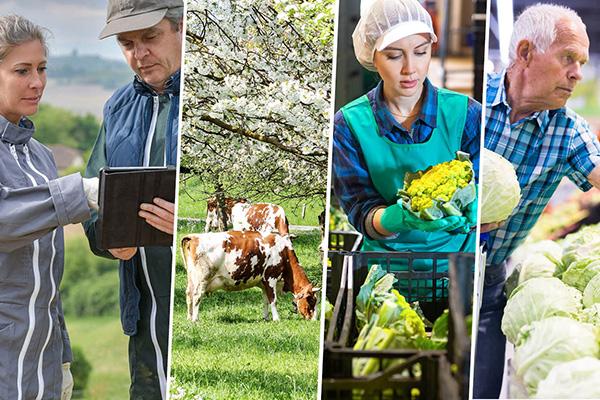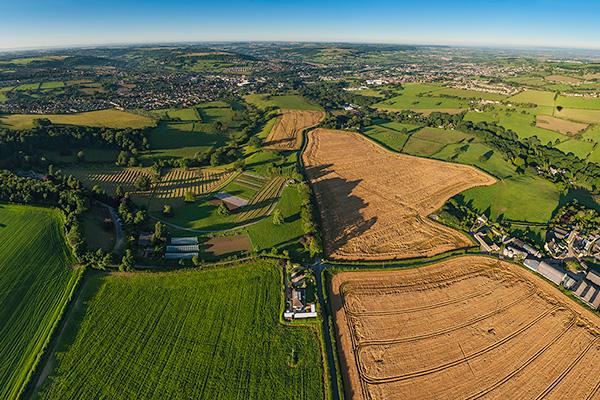The instrument for pre-accession assistance (IPA) includes support for IPA rural development programmes (IPARD).
IPARD focuses specifically on rural areas and agri-food sectors of countries in the process of joining the European Union (EU). The IPARD III programmes cover the 2021-27 period.
This rural development assistance under IPA III is also promoting a gradual alignment with the rules of the EU’s common agricultural policy.

IPARD and pre-accession assistance
IPA III aims to support beneficiary countries in adopting and implementing the political, institutional, legal, administrative, social and economic reforms required to comply with EU values, progressively aligning with EU rules, standards, policies and practices. IPA III thereby contributes to those countries’ stability, security and prosperity with a view to their EU membership.
The priorities and objectives of IPA III are defined in the IPA programming framework through five thematic windows, which mirror the clusters of negotiating chapters. The thematic Window 4 Competitiveness and Inclusive Growth, which seeks to contribute to strengthening economic and social development, includes agriculture and rural development.
With IPARD, the EU provides the beneficiary countries with concrete financial and technical help to achieve a balanced territorial development by raising social, environmental and economic standards in rural areas, in order to:
- strengthen the competitiveness and viability of the agri-food sectors by building an agriculture capable of competing with market forces,
- ensure sustainable management of natural resources, and
- increase resilience to climate change.
The countries currently benefitting from IPARD III support are: Albania, Montenegro, North Macedonia, Serbia and Türkiye.
Objectives of IPARD
The IPA III (2021-27) assistance to rural development will contribute to achieving the following objectives:
- increase the competitiveness of the agri-food sector, progressively aligning it with the EU standards (veterinary, food safety and phytosanitary), and improving the efficiency and sustainability of on-farm production, which will provide a better response to societal demands for safe, nutritious and sustainable food,
- facilitate business development, growth and employment in rural areas, improve farmers’ position within the value chain and attract young farmers into agriculture,
- contribute to climate change mitigation and adaptation, foster sustainable management of natural resources and contribute to the protection of the environment,
- improve community development and social capital in rural areas and build-up modern public administrations for agriculture and rural development, respecting good governance principles.
IPA III and IPARD III aim to help beneficiary countries to start their transition towards sustainable food systems. This is increasingly important in order to align with the EU food safety rules and the EU Farm to Fork Strategy, at the heart of the EU Green Deal designed to make food systems fair, healthy and environmentally friendly.
IPA III and IPARD III will also contribute to ensuring these countries’ food security through the economic and social development of rural areas, and to build resilience to adverse effects of climate change.
IPARD support
EU funding
For the 2021-27 period, the EU allocation for the IPARD III programmes is € 990 million. However, the total amount spent on IPARD funded projects will be higher as each beneficiary country also contributes to the overall IPARD support by providing national contribution (national public funding). In addition, for many of the measures, the recipients themselves are also required to fund a share of the projects’ costs.
Indicative IPARD III allocation
The EU allocation for the IPARD III programmes is indicatively divided between Albania, Montenegro, North Macedonia, Serbia and Türkiye as follows:
| 2021 | 2022 | 2023 | 2024 | 2025 | 2026 | 2027 | Total | |
|---|---|---|---|---|---|---|---|---|
| All countries | 90 | 99 | 113 | 153 | 170 | 180 | 185 | 990 |
| Albania | 8 | 10 | 12 | 16 | 19 | 23 | 24 | 112 |
| Montenegro | 5 | 6 | 8 | 9 | 10 | 12 | 13 | 63 |
| North Macedonia | 7 | 8 | 12 | 15 | 17 |
18 |
20 | 97 |
| Serbia | 20 | 25 | 31 | 43 | 54 | 57 | 58 | 288 |
| Türkiye | 50 | 50 | 30 | 75 | 75 | 75 | 75 | 430 |
Please consult national IPARD programmes for the total amounts allocated for each programme.
Available measures
IPARD beneficiary countries link their respective funding to concrete measures, included in their IPARD III programmes. The EU framework for IPARD III programming provides for 13 different measures, explained in the sectoral agreement concluded between the European Commission and each of the IPARD beneficiary countries.
Each country selects the measures, which best address its specific needs identified in the rural development strategies and the programme’s needs assessment and which contribute to the relevant priorities of the IPA III programming framework. The results will be measured against targets and indicators.
The 13 measures are:
helps farms invest in buildings or technologies to increase the efficiency, competitiveness, and more sustainable agricultural production;
is to help farmers to face jointly market challenges and strengthen their bargaining power in relation to production and marketing, including in local markets;
seeks to ensure projects in food processing companies meet EU safety and environmental standards;
aims to promote farming management practices and production methods, which improve the state of the environment, natural resources and mitigate and/or adopt to climate change;
supports local action groups, representing a wide range of multi-sectoral private and public partners, in implementing their bottom-up local development strategies, which contributes to economic, social, cultural and environmental improvements of local areas;
targets economic, social and territorial development of rural areas through the development of physical infrastructure which improves rural population’s living standards and overall attractiveness of rural areas;
is a tool for rural businesses and farming families seeking to develop non-agricultural activities, thus creating new jobs, diversifying income sources and reversing rural depopulation;
is to contribute to the improvement of the occupational skills and competences of persons engaged in the agricultural, food, and forestry sectors;
aims to build modern public administrations for agriculture and rural development by supporting training, analyses, programme monitoring, capacity building;
has as objective to strengthen the advisory services which will contribute to improving the economic and environmental performance of farms and rural micro enterprises;
promotes the restoration, maintenance and enhancement of forestry ecosystems whilst addressing the challenge of climate change;
support the growth and development of farmers and agri-food enterprises by creating favourable lending conditions and by attracting private capital;
aims to increase the efficiency, competitiveness and sustainability of agricultural production by encouraging the wider and faster use of available innovative solutions and measures.
Implementation
For the IPARD funding to be distributed to the beneficiary countries, each country is required to present a multi-annual programme (IPARD programme), covering the entire period of the IPA III implementation, to the European Commission for approval. Once adopted, the programmes are managed by structures established in each of the beneficiary countries. They are compliant with good governance standards of modern public administrations, in accordance with management and control systems.
The entities managing the programmes in each beneficiary country are the following:
- the Management Structure composed of the NAO Support Office and the Accounting Body,
- the IPARD Managing Authority, and
- the IPARD Agency.
Each beneficiary country contributes to the budget of the programme through national public funding, and the EU contribution is co-financing public expenditure actually paid to the recipients.

IPARD programmes are implemented through indirect management. This means that the Commission delegates the implementation of EU-funded programmes to national authorities. For those authorities to receive the right to manage the EU funding, they must first receive an accreditation for the funding implementation from the Commission. The latter grants the accreditation only if national authorities’ institutions provide evidence of their capacity to manage EU funds in accordance with the EU sound financial management ensuring protection of the EU financial interests.
This process ensures the programmes’ execution and funds’ transfer to recipients. At the same time, this contributes to building national institutions and governance in rural development, which corresponds to another objective of IPARD: to bring the functioning of the beneficiary countries’ administration closer to the EU standards and requirements.


